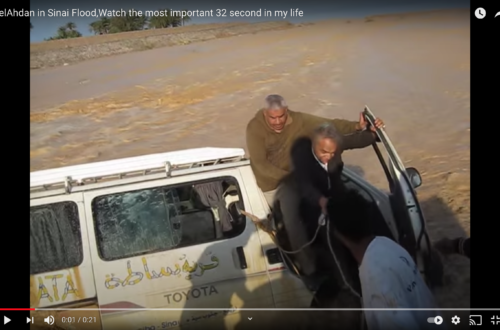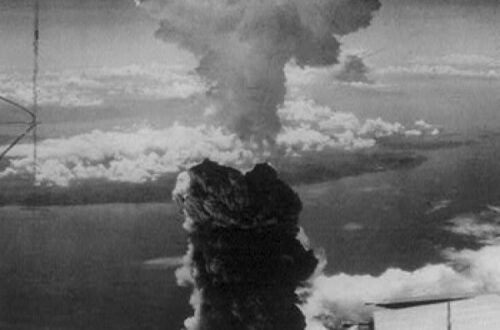
Tahrir Square…. The Freedom Trail!
The Egyptian people revolution that erupted on January 25th resulted in a birth of nation where millions of Egyptians found out that Egypt is their own country. This revolution didn’t start on Jan25th, it started a year earlier when a young boy by name Khaled Saeed was brutalized by Egyptian police a year earlier, his smashed face picture taken by his own mother was posted online, and it became as Egyptian filmmaker and social activist Khlaed Abol Naga said to me, a seed for the Jan25th revolution. Thanks to digital cameras and social media, millions of people around Egypt were instantly able to see the gruesome images of the face of the young Egyptian Khalid Saeed. Khalid Saeed was a 26 year old bright young man who loves rap music and regular visitor of cyber cafe in Egypt. Mr. Saeed picture that circulating over the internet and fbook indicate a massive damages to his face, which the Egyptian officials comically claimed was a result of performing an autopsy a few hours after his death; apparently the Egyptian security accustomed to perform autopsy on citizens to erase any trace of torture. Millions of young Egyptian identified with Mr. Saeed tragic fate, demonstration and anti government protest was a daily event, started in Alexandria and it ended in Cairo Tahrir Square on Jan25th, 18 amazing days later Egyptians were able to topple a 30 years of dictatorship. Tahrir Square, (Liberation Square) . The famous square is a major public focal place in Downtown Cairo. It combines all the contrasts in Egypt, from the Egyptian Museum, Hilton hotel, surrounded by elegant buildings that were modeled as the Paris of the Nile. Also it has the biggest public bus station where thousands of poor Egyptians congregate every day to go to work and homes. It took its prominence in the 19th Century when another Mubarak -Ali Pasha Mubarak was charged with remodeling Cairo commissioned by Egyptian ruler at the time Ismail Pasha. And was named Ismailia Square, The square’s name was changed to Midan Tahrir or ‘Liberation Square after the first Egyptian Revolution of 1952. The square has been the traditional gathering place for Egyptians with a grievance – from the bread riots of 1977 to the protests against the US-led invasion of Iraq in 2003. Tahris Square had been the symbol for the Egyptians and the focus of the student movement and oppositions up to the Jan25th revolution. I was Glued to Al Jazeera for 18 days watching the millions of brave Egyptians toppling a 30 year of dictatorship, but the moment was when later on when protesters started storming police stations, and national security centers one of which I was myself tortured, this seen brought old painful memories that have been suppressed for more than 35 years. It was the 24th of January 1972, which witnessed a dramatic escalation in the confrontation between students and the Sadat government. Students discovered that the leaders of a sit-in at Cairo University had been arrested. Some 20,000 infuriated students headed towards central Cairo, where security forces failed to disperse them and stopping them from reaching the Square. This was the first time on which President Sadat had to face street riots, and it sets a precedent which he never forgave or forgot. I was a young freshman student who just moved to Cairo from a small village in the delta, politically fragile, never participated in any meaningful way in politics. They announced in the school about the general strike at Tahrir Sqaure, It also witnessed my first day in political life. Against my parents and the rest of family wishes I decide to go, not to participate in the general strike but to be there. I walked the short ½ mile from my house through Qaser Ein street, people were coming from everywhere, no chanting no conversation, just slow steadfast movement, as if something big is about to happened. Once I got to the Square where thousands of people were there already, we congregated around the center where the most elegant public fountain in Egypt, (no longer there now) surrounded by 10,000-20,000 students chanting, joking, and talking, the night fall was cold, the air was thick. Students started climbing walls and posts, bringing down advertisements billboards and pictures of Sadat and his family, all were consumed by a huge camp fire. It was like the 60th Woodstock without drugs and sex. As the night went on, the big crowd broke downs to smaller groups, people with different grievances and different interest, start forming their own groups, breaking away from the center where the hard core protesters are, the further the you are from the center, the more inclined to leave on your own. People started trickling out of the Sqaure, you don’t notice these attrition, the crowd that reached in thousands, now a few hundreds. These are the hard core ones surrounded the revolutionary poet Ahmed Negim, he started singing his resistance song, “Dahi Beyah Yamah, Dahi Beya, Dal Edyah Yamah, Dahi Beyah” Oh mother, scarify me, I’m the gift of the scarify feast, Oh mother; the Muslim scarify feast was a few days away. Nobody had any plan to leave. I wanted to see it to the end, the Square was surrounded by thousands of national security forces and riots police. People can leave but there wasn’t any ones coming to replace them. At about 3am, a high ranking police officer approached the crowd, from a short distant he gave his order on a horn speaker, you have seven minutes to leave the Square. The crowd cheered a shown of their defiance. Everyone looked at each other to feel the mood. Things were tense, the organizers asked the crowd to set next to each other and hold hands in confrontation of the police forces, at this point, you have no option but to stay with the group. Rows of police troops equipped with riots platoons and full geared started moving closer. The group chanting started rising “Belady … Belady”, oh my country, oh my country to rally everyone to stay. The security forces seemed undaunted, kept getting closer. “we are all Egyptians, we are all Egyptians, chanted the crowd, no communication was taking place. “they don’t speak our language”, joked a protester. The stake was so high and your survival now depends on everyone else survival. A few minutes later and without any warning, all the lights at the square went off, and tear gas were flying everywhere. The security police quickly charged in concert. No amount of patriotism can keep those hard core protesters together, you lose your sense of place, you don’t who is next to you, your connection with your group breaks down, now what is left for you to do is to run away from it all. As I was terrified, I saw a young female student whom I never seen before, trembled and fell inside the public fountain, five or six security forces descended on her beaten her with such brutality I never seen before, I was frozen emotionally spent, stopped dragged her and we both frantically ran away, we never spoke or saw each other again. That day, on January 24th, 1971 at about 4am, I realized in Egypt, our government eat their own children like wolves, my sense of Egypt was never the same again. I moved away from the crowd to a side street in the affluent Garden City suburb. As I was looking for a short cut to get home, I lost my way in the confusing city streets. I was rounded up by the Egyptian secret police (The Mukhabarat), who were zealously trying to fill their daily quota of random arrests.
I was lined up with more students along with common criminals. A tall handsome police colonel standing at the front started shouting the worst kind of profanities at us, his harsh words quickly extended to our families and parents. Without thinking and in a fearful voice I mumbled, “my parent did nothing wrong.” Unfortunately, the colonel overheard my soft protest; what happened after that has changed my life forever and shattered my faith in authority; my innocence was tarnished forever.
The angry police colonel stopped his verbal humiliation and without looking at me, he ordered one of his guards to take me away to … “the room.” The guard knew exactly where to take me; inside the prison, it was a small dark smelly windowless cold room, naked room stripped out of any human sign, the dark silence in the room seemed as if it has witnessed lots of broken souls. Shortly, the colonel entered the room, where he calmly and without uttering a word or acknowledging my presence, closed the door, picked up a big riot stick and started hitting me savagely and indiscriminately. I stood helplessly overwhelmed by the colonel’s outrage; the severity of the beating escalated, until my skin start peeling off my body before my own eyes. I lost my feeling and any connection to my body; my confusing thoughts were trapped with no place to go. I wasn’t trying to be a hero, I couldn’t muster any words, I couldn’t scream or resist. I couldn’t understand the colonel’s anger and outrage, but I knew he had a free hand to do to me whatever he pleased in that room. He didn’t ask about my name, he never looked me in the eyes, he never explained my crime. I was reduced to a nameless, faceless object, as I stood motionless and void of any rights or expression. I wasn’t the usual suspect — a communist, a Jihadist or a government agitator. This wasn’t a national security issue, it was personal insecurity issue; The Colonel, unaccustomed to the slightest challenge, needed to break my will. He wanted me to beg for mercy, he needed a complete conquest.
My silence was deafening, and as the colonel grew more infuriated, he started getting more creative in his abuse. His relentless physical torture made his early verbal profanity seem like a friendly conversation. There is nothing more humiliating than unjust abuse; I couldn’t resist or retaliate, his savage hitting destroyed my ability to express my pain. At the time, I wished he would mix his severe beating with some verbal humiliation.
After what seemed like an eternity, the beating suddenly stopped, and without saying a word, the colonel stormed out of the torture room, he couldn’t stay and face his unbroken victim. I found myself standing alone licking my wounds, only to realize for the first time that the guard who brought me to the room was still there; he was standing in the corner wiping his tears. His display of sadness brought a much-needed touch of humanity to the torture chamber.
I often wondered how my brief confrontation with this colonel could generate so much fury against a helpless young boy. He was not following any orders; he was the whole chain of command. I now realize we were both victims. I was a victim of unjust violence and abuse. He was a victim of his sadistic obsession with violence and his intoxication with power. I was physically paralyzed for weeks. He was morally paralyzed for life. There wasn’t any digital camera to tell what happened inside the torture room that day; all these years, my own memory has had to carry the entire load … alone; … this is the real torture.
Ahmed Tharwat/ Public Speaker/Host of the Arabic TV show BelAhdan www.ahemdiatv.com
Please support our project , now you can donate online on www.kickstarter.com
.copy this link


